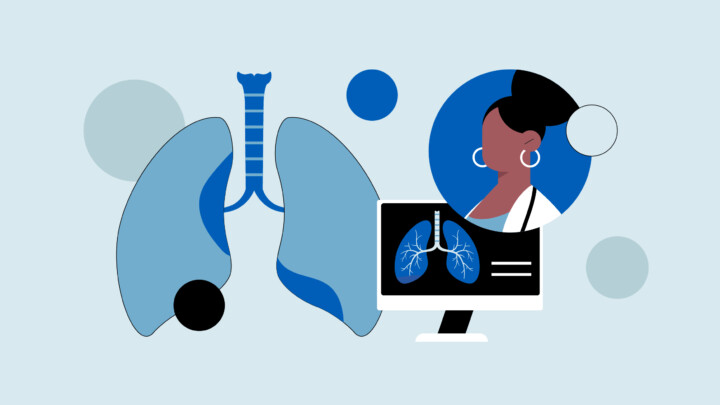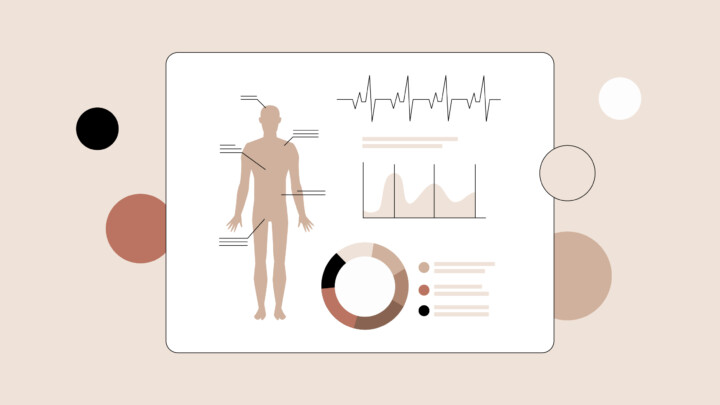
For the millions of people who suffer from Alzheimer’s disease and their families, the promising news of an experimental drug could bring much-needed hope. The new drug called lecanemab, slowed cognitive and functional decline by 27 percent in a clinical trial that has been closely watched.
In a recent poll of 300 global Sermo physicians, 87% said they believe the new experimental Alzheimer’s drug is promising and 84% believe this news should bring hope to their patients suffering from Alzheimer’s and their families.
Given the lack of effective treatments for Alzheimer’s, 90% said that a 27% slowing of cognitive deterioration is meaningful. And 79% believe that the lowering of amyloid at this stage, translating into a slowing of clinical decline, is a huge breakthrough.
However, given the problems with the similar drug Aduhelm—which was sponsored by the same drug makers—69% feel some skepticism about this new drug lecanemab.
The Washington Post reports, “Japanese drugmaker Eisai and its American partner, Biogen, in a news release said the slowing of deterioration, compared with a placebo, was “highly statistically significant.” They said the drug, called lecanemab, had met the primary and secondary goals of the 18-month late-stage study. The trial results have not undergone peer review.
The upbeat news served as a stark contrast to the calamitous rollout last year of another drug, marketed as Aduhelm, sponsored by the two companies.
Like Aduhelm, lecanemab reduces abnormal clumps of beta amyloid, a hallmark of Alzheimer’s. But unlike Aduhelm, for which the data was confused and conflicting, the trial results for lecanemab told a straightforward and encouraging story, some experts said. Aduhelm was approved by the Food and Drug Administration, but Medicare refused to cover it broadly, and the drug collapsed in the marketplace.
‘A 27 percent slowing of deterioration seems like a modest effect, but for patients with Alzheimer’s, this could be very meaningful,’ said Gil Rabinovici, a neurologist at the University of California at San Francisco.
The trials for Aduhelm were shut down before they were completed, and a post-hoc analysis raised a raft of questions. But the lecanemab trial, called Clarity AD, was ‘completed according to protocol’ and shows that ‘lowering amyloid at this stage can translate into a slowing of clinical decline,’ Rabinovici said. ‘That is a huge breakthrough.’
Some other experts cautioned that the benefits of the drug were likely to be small and said they wanted to see the full data before reaching conclusions.
The companies have already applied to the FDA for accelerated approval for lecanemab, based on earlier-stage data. The FDA’s deadline for a decision is Jan. 6. The firms said the FDA has agreed that the results of the Clarity AD trial can serve as the confirmatory study to verify the clinical benefit of lecanemab. That process will continue to go forward.”
Below, Sermo physicians from around the world share more of their professional insights, perspectives, and opinions on this important topic—in their own words:
“The mab drugs may decrease the amount of amyloid and tau proteins in the brain BUT they would have to be taken indefinitely. If stopped, amyloid and tau would just start accumulating again. They do not address the underlying etiology of why amyloid and tau are accumulating in the first place. Then there is the cost (?covered by Medicare) and issues with ARIAs.”
Neurology, U.S.
“Sorry, but this drug will prove to be a significant, expensive failure. 27% RELATIVE decrease in cognitive decline is very close to zero. 27% ABSOLUTE decrease in cognitive decline would be noticeable. In the meantime, families and the government will spend a great deal of money and their hopes will make them believe that their loved ones are improving. While this company is taking their money. And eventually an honest study will show the truth or a new bogus drug will come along and this drug will fade into obscurity. For all of you that are so excited about this drug, please review the difference between relative and absolute risk reduction.”
Family Medicine, U.S.
“The field of neurology has enormous challenges ahead, I believe that the development of novel and hopeful treatments is always important and must have the necessary follow-up and funding.”
General Practitioner, Cuba
“These studies never account for the probably immeasurable placebo effect engendered by sincere doctors giving love and attention steadily for long periods of time to otherwise forgotten people who just know they are declining.”
Psychiatry, U.S.
“This is encouraging news. I have treated patients with Alzheimer’s and the symptoms are devastating, even generating fatigued family members and caregivers. This drug could be an alternative.”
General Practitioner, Venezuela
“Good post. Looks promising, but what exactly is the modest 27% decline? We do not want to take away hope for the patient and family, but the “slowed cognitive and functional decline” is vague. Time will tell after it is approved, if it is approved.”
Ophthalmology, U.S.
“The drug lecanemab is a monoclonal antibody. Monoclonal antibodies try to mimic the antibodies that our bodies produce naturally in the context of the immune system’s response to foreign agents or vaccines. The “Clarity” study, which is how this clinical trial was baptized, was aimed at verifying whether lecanemab could modify the course of the progression of Alzheimer’s disease by targeting the elimination of certain species of the β-amyloid protein in the brain of people with Alzheimer’s.”
Family Medicine, Ecuador
“There is always hope, with respect to this news, the important thing is not to speculate.”
Geriatric Medicine, Italy
“In this disease it is clear that small steps are taken and without clear reasons for optimism, but precisely for this reason, because of how difficult and costly they are, these small advances should not be discarded nor the optimism that they can produce.”
Gastroenterology, Spain
“This is really good news, this gives hope not only to patients but also to family members who must live day to day with the patient.”
Anesthesiology, Venezuela
“The topic is interesting, I think that a 27 percent efficacy is not really what is expected, but at least we see that progress is being made in the study and that at some point a very positive result will be achieved for these patients, which would be very useful…”
Family Medicine, Cuba
“No complete “cure” is expected for a neurodegenerative disorder like AD and a 27% reduction in cognitive and functional decline is a very good result. However, doubts remain in the absence of peer review of the whole set of data.”
Neurology, U.S.
“I believe that in an efficacy study, obtaining a 27% response rate is a very poor result. We must also wait for the results of the trial regarding the toxicity of the monoclonal antibody for it to be a hopeful trial.”
Oncology, Cuba
Looks promising, but what exactly is the modest 27% decline? We do not want to take away hope for the patient and family, but the “slowed cognitive and functional decline” is vague. Time will tell after it is approved, if it is approved.”
Ophthalmology, U.S.
Everyday thousands of Sermo member physicians from diverse backgrounds and experiences exchange knowledge with each other. Sermo is the original medical social network that empowers today’s physicians. Over 1 million fully verified physicians across more than 150 countries come to our platform to talk with peers, participate in paid medical studies, solve challenging patient cases, contribute to the world’s largest database of drug ratings – and enjoy a few laughs along the way.
Interested in more? Check back any time and follow us on Facebook, Twitter, and LinkedIn for the latest and greatest in physician insights.
Are you a physician or healthcare practitioner?
Explore the many benefits of joining Sermo’s medical community and sign up for free today.














